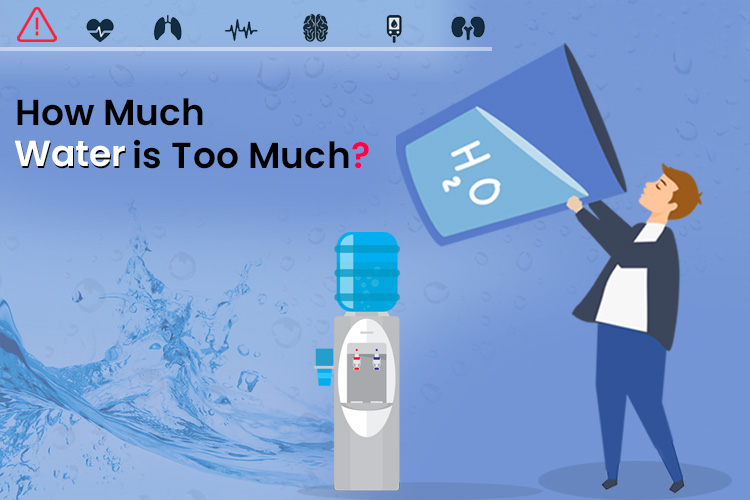Drinking enough water is essential for life and well-being.
Experts recommend that water intake should be about 15.5 cups (3.7 liters) for men and about 11.5 cups (2.7 liters) for women per day.
Consuming enough water helps your body regulate temperature, prevent constipation, and flush out toxic wastes, among others.
However, drinking too much water can lead to water intoxication and severe health consequences.
Here’s how to know if your water intake is too high.
Defining Water Intoxication
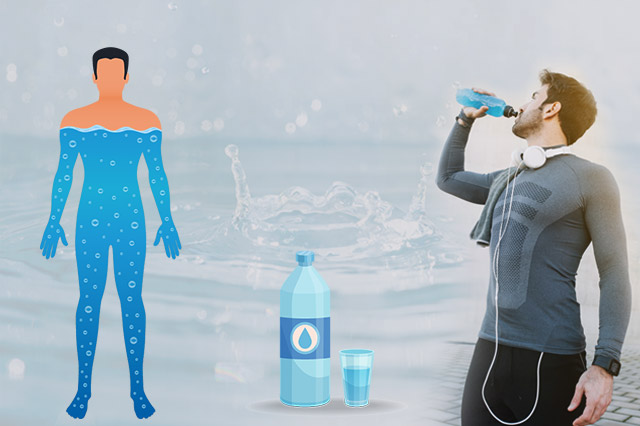
Water intoxication, also known as water poisoning or overhydration, is a health condition caused by drinking too much water. The main concern of overhydration is ‘Hyponatremia.’
Drinking high amounts of water can lead to an imbalance of electrolytes and salts in the body.
[Also Read: Why Water is Important for Fitness?]
Symptoms of Water Intoxication

Symptoms of overhydration are not recognizable in the early stages. As the condition progresses, you can see some mild symptoms including
Mild Symptoms:
- Headaches
- Nausea
- Vomiting
Overhydration, if untreated, can lead to some severe symptoms, such as
Severe Symptoms:
- Drowsiness
- Muscle weakness or cramping
- Increased blood pressure
- Double vision
- Confusion
- Inability to identify sensory information
- Difficulty breathing
7 Side Effects of Drinking Too Much Water
1) Hyponatremia
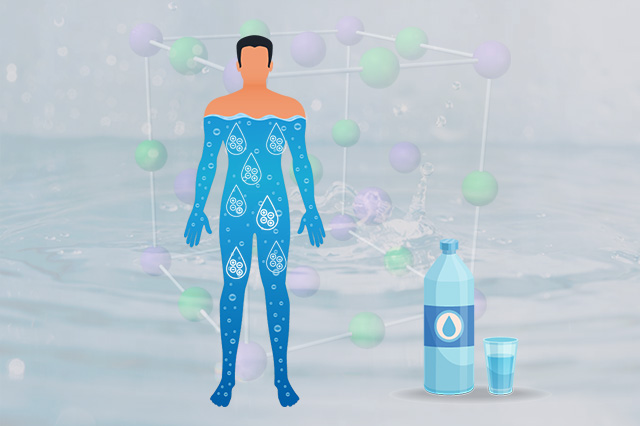
Salts and electrolytes help maintain the balance of fluids inside and outside body cells. The excess water dilutes the sodium in the blood leading to the flow of fluids into cells, causing them to swell.
[Also Read: Smart Water App that Track Your Intake of Water]
Hyponatremia is a health condition in which sodium levels fall below 135 millimoles per liter blood serum (mmol/L). With a fall in sodium levels, you start feeling nauseous, disoriented, fatigued, or get a headache.
[Also Read: 5 Health Fruit Juices To Relieve Constipation]
2) Diarrhea

Overhydration leads to hypokalemia or an imbalance in intracellular and extracellular potassium ions. This, in turn, causes diarrhea and prolonged sweating.
3) Fluid Buildup in Brain

If hyponatremia happens to brain cells, the pressure inside the skull increases. The buildup of fluid in the brain is called cerebral edema, which affects the brain stem and causes central nervous system dysfunction. Brain swell can lead to speech disability, disorientation, walking instability, psychosis, and even death.
[Also Read: 8 Foods to Avoid for a Healthy Brain]
4) Pressure on Heart

Overconsumption of water increases the volume of blood inside the body. The increased blood volume puts unnecessary pressure on the blood vessels and heart. This can lead to heart failure in people undergoing dialysis. Sometimes, it may also cause seizures.
[Also Read: Increase Heart Health with a Healthy Dose of Pushups]
5) Acute Kidney Injury (AKI)

Water intoxication can lead to acute kidney injury. Consumption of too much water lowers plasma levels of arginine vasopressin that helps preserve kidney function. So, the kidneys need to put extra efforts to maintain homeostasis.
6) Frequent Urination
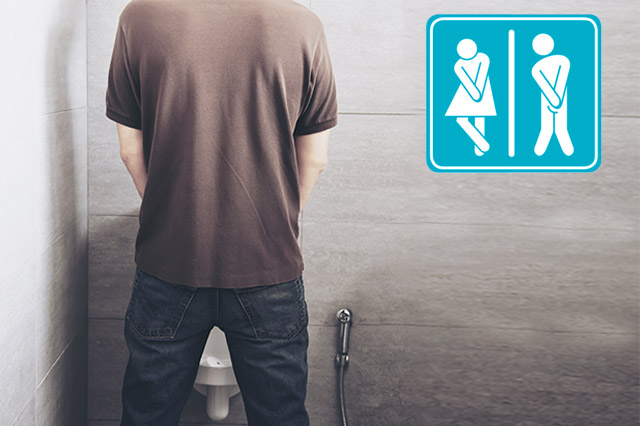
Overconsumption of water can lead to frequent urination.
“If you’re peeing more than seven times day, dial back your water consumption and see if the problem goes away,” says Dr. Sangeeta Mahajan, M.D., a Urogynecologist at the University Hospital Cleveland Medical Center.
7) Chlorine Overdose
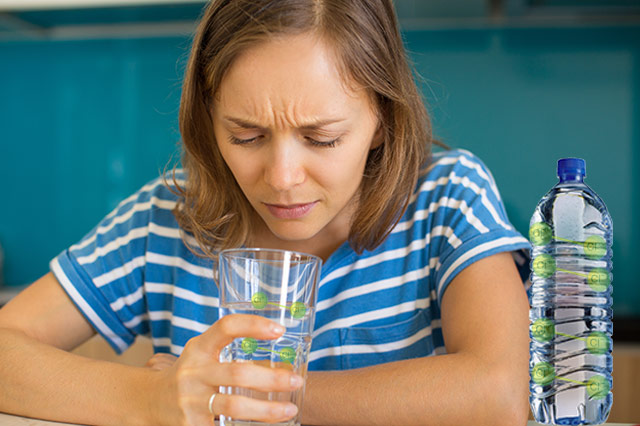
Overconsumption of water can lead to chlorine overdose since chlorine is used as a disinfect in drinking water. This puts you at the risk of developing bladder and colorectal cancers.
Who is at Risk of Water Intoxication?
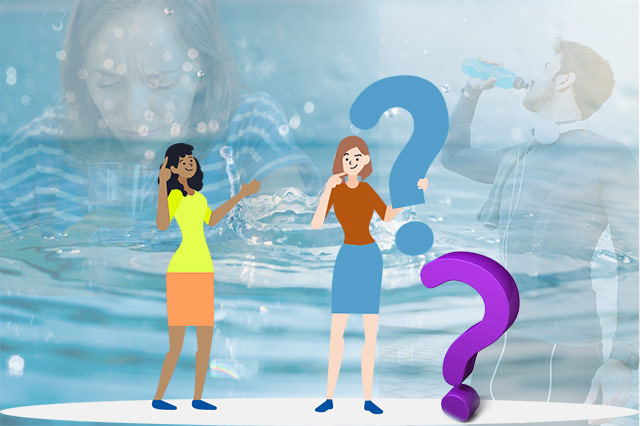
Overhydration is more common among fitness freaks and sports aspirants who consume high amounts of water during training. Some of them include
- Marathon and ultramarathon runners
- Ironman triathletes
- Endurance cyclists
- Rugby players
- Elite rowers
- Military personnel
- Hikers
- Football players
- People suffering from psychogenic polydipsia, schizophrenia, Congestive Heart Failure (CHF), liver disease, kidney problems, diabetes, and MDMA
How to Treat Water Intoxication?

The treatment of overhydration depends on the severity of the symptoms and conditions that caused it.
Treatments may include:
- Limiting fluid intake
- Taking diuretics to increase water excretion
- Treating conditions that cause overhydration
- Taking electrolytes and salts to bring back the balance in blood fluids
In Conclusion
According to the US Centers for Disease Control and Prevention (CDC), there are no official standards on how much water a person needs to drink each day.
The right amount of water intake depends on factors such as body weight, level of physical activity, climate, health conditions, gender, and age.
For instance, athletes, older adults and pregnant women may need to drink more water each day.
However, to prevent overhydration, it is recommended to drink no more than 0.8 to 1.0 liters of water per hour.
Try Fitness Apps to monitor your daily water intake!
Download on Google Play Download on iOS App StoreMore Latest Articles:
- Fitness Solutions for Safe and Engaging Workouts
- How Much Should You Walk to Lose Weight?
- 6 Sugar-Free Fruits and Vegetables
- 8 Natural Ways to Improve Blood Circulation
